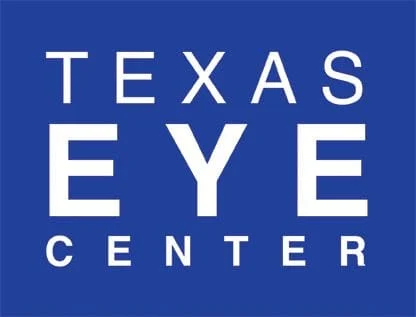How does glaucoma testing work?
Glaucoma testing may involve one test or a combination of tests. The procedures are quick, painless, and noninvasive. They help your doctor see inside your eyes, assess vision loss, and choose treatments.
Methods Used During a Glaucoma Evaluation
At Texas Eye Center, our team of ophthalmologists performs comprehensive glaucoma screenings to achieve a full and accurate assessment of your unique situation. We use several different methods to accurately assess whether you have glaucoma as well as your risk of developing the disease later. All tests conducted during a glaucoma evaluation are painless, non-invasive, and safe.
Measurement of Intraocular Eye Pressure
Elevated intraocular pressure (IOP) is a major risk factor for the development of glaucoma, as optic nerve damage becomes more likely as IOP increases. During your glaucoma evaluation, your doctor will measure your IOP using a procedure called tonometry. After administering eye drops to numb your eyes, your doctor will use a device that applies a small amount of pressure to your eye to measure its internal pressure.
Your doctor will also measure your corneal thickness using a test called pachymetry. This is necessary to stratify one’s risk of developing glaucoma, as thinner central corneas are associated with an increased risk of developing glaucoma.
Measuring intraocular pressure at different times of day may be necessary in some cases to achieve an accurate diagnosis.
Assessment of the Optic Nerve
To assess the health of your optic nerve, your doctor will use a non-invasive slit lamp biomicroscope to detect changes in the nerve consistent with the diagnosis of glaucoma. Your doctor may also use stereographic photography or more advanced imaging techniques of the optic nerve, such as optical coherence tomography (OCT).
OCT allows us to view the nerve fiber layer which sends information from cells in the retina that capture light called photoreceptors to the brain where this information is interpreted as an image. These instruments may show damage from glaucoma at a much earlier stage than can be detected by other methods. Earlier detection and intervention can allow your doctor to slow the progression of glaucoma more quickly.
Evaluation of the Peripheral Visual Field
As your optic nerve is damaged by glaucoma, defects in your vision can result, most often involving your peripheral vision. Your peripheral vision is measured using standard visual field testing. It should be noted that glaucoma-related visual field loss may not become evident until significant optic nerve damage is present.
At Texas Eye Center, we use several advanced techniques, including short-wavelength automated perimetry, which can detect damage to the visual field from glaucoma earlier than some standard tests. During a short-wavelength automated perimetry test, your doctor will use an instrument that projects blue stimuli onto a bright yellow background. Your ability to see the blue stimuli allows your doctor to detect defects in your visual field.
Additionally, software incorporated into our visual field machines can help detect the worsening of peripheral vision by comparing all stimulus points either over time or relative to your most recent visual fields. This allows our glaucoma specialists to determine if your glaucoma is functionally stable or worsening.
What can I expect after a glaucoma test?
After glaucoma testing, you may have certain restrictions. For example, your vision will probably be blurry, so you should have someone else drive you home. If you have a dilated eye exam, you may need to wear sunglasses to protect your eyes from excess light and ultraviolet (UV) rays.
Your doctor will give you detailed instructions, depending on the type of tests you have.
